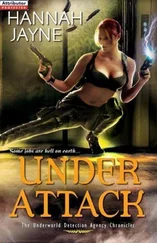Towns along the Kent and Sussex coasts were evacuated, beaches were mined, piers dismantled and barbed wire uncoiled. An appeal by Anthony Eden, Secretary of State for War, broadcast just after the BBC nine o’clock news on 14 May, for volunteers ‘to serve in the defence of their country in its hour of peril’ had resulted in a stampede that had reached one and a half million by the end of June. For many months these Local Defence Volunteers (soon to be renamed the Home Guard at Churchill’s insistence) had no uniform other than a brassard, and since all military equipment had first to be channelled to re-equip the denuded army, nothing to fight with other than a pitchfork or broomstick, or if they were fortunate, a First World War Lee Enfield rifle. Nevertheless, the band of under-resourced men was evidence of a willingness to ‘defend our island whatever the cost may be’, as Churchill had demanded.
Hitler hoped that Britain could be persuaded to abandon the fight and sue for peace when faced with the success of the blitzkrieg that had swept through the Low Countries and France and now threatened its shores. However, a final peace offer was rejected by the Foreign Secretary, Lord Halifax, on 22 July, and since it was clear that, despite the odds, Britain intended to fight on alone (though of course supported by Empire and dominion forces), various means were considered of bringing the country to its knees, including invasion. But it was obvious that there could be no successful invasion until German planes enjoyed air supremacy, and the aim of what has become known as the ‘Battle of Britain’ that summer was to wipe out the country’s defences. By early July the Luftwaffe was dive-bombing British shipping and ports along the south coast and engaging RAF fighter planes in aerial combat; on 8 August it switched to trying to knock out Britain’s fighter defences, with attacks on airfields, radar stations and other targets such as repair sheds and anti-aircraft guns and equipment.
It soon became apparent to Hitler that this strategy on its own was not working. ‘The collapse of England in the year 1940 is under present circumstances no longer to be reckoned on,’ he told his HQ staff on 20 August. The dogfights over southern England and the bombing raids on RAF targets had not succeeded in putting Britain’s air force out of commission. The battle continued, although 15 September 1940 has since been celebrated as Battle of Britain Day, the day on which in retrospect it became clear that against the odds Britain had retained mastery of its skies.
However, Reichsmarschall Hermann Göring, Air Minister and Commander-in-Chief of the German air force since 1935, assumed on the basis of inaccurate intelligence that Fighter Command was all but annihilated, and was anxious to attack London in the hope that this would draw RAF fighter planes to the capital, where they could be picked off. On 24 August, in contravention of Hitler’s orders, the Luftwaffe dropped several bombs on London. Although this was most likely an error, it gave Churchill the opportunity to order raids on Berlin, in the expectation that Hitler would retaliate and send his bombers to London, where they would be expected – and supposedly dealt with – thus relieving the pressure on the Western Front in France. On 2 September Göring ordered the Luftwaffe to switch to bombing Britain’s industrial and administrative centres and transport and communication links, while the strategy the Kriegsmarine (the German navy) advocated, the blockading of British ports and attacks on her shipping, continued unabated.
So the war entered a new phase. The ‘Battle of Britain’ was to be carried on by other means. Germany’s targets were now industrial installations and transport and communication links around major cities. It was hoped that this would ‘cripple’ Britain and compel her to seek peace. The home front would become a front-line battlefield for the next five years. And on 7 September 1940, ‘Black Saturday’, the first day of the war of persistent aerial attack that became known as the blitz, it was the London docks that were in the Luftwaffe’s sights.
* The first civilian British bombing death had in fact come on 16 March 1940, when an Orcadian labourer was killed as he stood by his croft door in the hamlet of Bridge of Waithe. It was presumed that the German plane had lost its way, or had mistaken the hamlet for a nearby airfield.
1 Black Saturday, 7 September 1940
[The British] will understand now, as night after night, we give them the answer [to RAF bombing raids on Germany] – when they declare they will attack our towns on a large scale, then we will erase theirs.
Adolf Hitler speaking in the Berlin Sportspalast, 4 September 1940
‘The Reichsmarschall is leaving his train and is coming past us. He sees us. Is this what he was intending? Is he really coming? Yes. He is coming! The Reichsmarschall is coming from his train and is coming to the radio,’ the German announcer reported excitedly on 7 September. Hermann Göring, a large, heavy man, clad in a greatcoat, wearing the Grand Cross of the Iron Cross, which he had been awarded as a result of the French campaign, at his throat, strode to the microphone to address his fellow countrymen and women. ‘I now want to take this opportunity of speaking to you, to say this moment is a historic one. As a result of the provocative British attacks on Berlin on recent nights the Führer has decided to order a mighty blow to be struck in revenge against the capital of the British Empire. I personally have assumed the leadership of this attack, and today I hear above me the roaring of victorious German squadrons which now, for the first time, are driving towards the heart of the enemy in full daylight, accompanied by countless fighter squadrons.’ So saying, the Commander of the German air force clambered back into the carriage of his personal train, ‘Robinson’, and resumed his journey back from the Channel coast where he had stood on the cliffs of Cap Gris Nez, binoculars trained on Britain, watching the German aircraft set out on their mission and maybe hoping to catch a glimpse of the effects of the havoc their bombs would wreak in their ‘major strike on Target Loge’ (the German code name for London).
Sitting in deckchairs, mowing the lawn or visiting friends that sun-filled afternoon, people in Kent looked up as the drone of planes grew louder and louder – ‘like the far away thunder of a giant waterfall’, thought the American journalist Virginia Cowles. She was having tea in the garden of the Palladian Mereworth Castle, the home of the press baron Esmond Harmsworth, eldest son of Viscount Rothermere, in Kent, forty miles from London. ‘We lay on the grass, our eyes strained towards the sky; we made out a batch of tiny white specks, like clouds of insects moving north west in the direction of the capital. Some of them – the bombers – were flying in even formation, while the others – the fighters – swarmed protectively around … during the next hour [we] counted over a hundred and fifty planes. They were not meeting any resistance.’ To the urbane diplomat turned journalist and author Harold Nicolson, now a Junior Minister at the Ministry of Information, sitting with his wife Vita Sackville-West in their garden at Sissinghurst, also in Kent, the ‘wave after wave of enemy aircraft planes looked like silver gnats above us in the air’.
The siren had sounded at 4.43 p.m. that Saturday. Londoners had got used to its ululating note: the sound of ‘Wailing Winnie’ or ‘Moaning Minnie’ had been frequent during the last few weeks of constant ‘nuisance raids’. ‘We are growing accustomed to sudden warnings, and we have developed a quickening of our sense of danger … we are not panicky, but we are, at any rate subconsciously, more on the look-out than had hitherto been the case at any time during last year,’ the Harley Street psychologist and BBC producer Anthony Weymouth had written in his diary back in August. Harold Nicolson would have agreed. ‘People are becoming quite used to these interruptions,’ he wrote in his diary as he heard the siren wail on 26 August. ‘I do not think that that drone in the sky means death to many people at the moment. It seems so incredible as I sit here at my window, looking out on the fuchsias and zinnias with yellow butterflies playing around each other, that in a few seconds I may see other butterflies circling in the air intent on murdering each other.’
Читать дальше












